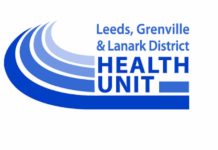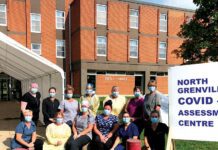It may not seem that there are any silver linings to the Covid-19 cloud that hangs over the world, but there may be more than one. Everything will depend on what we decide to do “after the darkness is gone”, as the song says. One of the more surprising results of having most of the world’s population in self-isolation and implementing physical distancing is that the environment has started breathing again. Air pollution in major cities has dropped significantly, and the overall health of the Earth’s atmosphere has improved. In places like Delhi, Bangkok, Beijing, São Paulo and Bogotá, the improvement in the air quality is quite astonishing, as people are forced to stay home and the number of vehicles and industrial plants belching pollutants into the atmosphere has dropped almost to zero.
According to a report from NASA a few days ago, air pollution over the Northeast United States in March 2020 are about 30% lower on average than at the same time last year. In India, the city of Delhi usually has lifethreatening levels of pollution, often almost ten times the level deemed unsafe by World Health Organization. Since the country was put under an almost complete lockdown, the air quality index has fallen in around 20, from the more usual 200 on a good day.
Wildlife has been returning to city streets as they remain largely empty of people. In Wales, the town of Llandudno has experienced herds of goats rambling through the streets. Peacocks are reported to be strolling down the streets of Ronda, Spain, and coyotes have been photographed around San Francisco, and sightseeing at the Golden Gate Bridge.
It seems that, for all the very justified concern about climate change and the effect we as humans are having on the planet, given the right conditions, things can be reversed remarkably quickly. This was seen in spectacular fashion after the Mount Saint Helen’s explosion in 1980. To everyone’s amazement, a completely new landscape appeared within days of the explosion, complete with new canyons and valleys and vegetation, something it had been thought would take decades, if not millennia to achieve.
That’s some of the silver linings we’ve seen through this pandemic, but at such a dreadful cost in lives and social disruption. But the steps taken by governments around the world also show how quickly the effects of globalisation and environmental degradation can be mitigated, if the will is there. Of course, one would hope that measures could be taken on a less drastic scale, a more gradual taking back control of the world’s economy to produce similarly positive results for the environment without the current massive unemployment and social controls we are experiencing now.
The big question is: do we, as a global community, have the will and desire to see this happen, or will we simply revert to the old and possibly fatal ways we indulged in before Covid-19? By the time this particular pandemic dies down, and before the next one arrives, as it most certainly will, given our history, will we have learned enough lessons to rethink our approach to world economics and mass consumption? Will we just return to our reliance on fossil fuels, and continue to destroy our own environment, or can we take this opportunity to start again, somehow?
Personally, I am on the pessimistic side when it comes to those questions. The human race has never really shown a desire for a simpler life and a more sustainable economy, though perhaps this shock to the system may wake enough people up. But I don’t see the infamous 1% who control more tan 90% of the world’s wealth being willing to give up their privileged position for the sake of the rest of us, especially when they believe their wealth and position makes them invulnerable to what we all may face.
But this crisis has shown us some impressive leadership, as well as some notable failures in the face of crisis. Canada is doing relatively well, though Jacinda Ardern, Prime Minister of New Zealand, can take much of the credit for the fact that, so far, only four Kiwis have died from the pandemic. Leo Varadkar, Taoiseach (P.M.) of Ireland, and a trained doctor, has registered to practice medicine again, and will be taking a shift in a hospital, in between running the government. There are whispers of hope in the darkness. As the song says: “Wait till the darkness is over wait till the tempest is done. Hope for the sunshine tomorrow after the darkness is gone.”
This too shall pass. We shall overcome.







